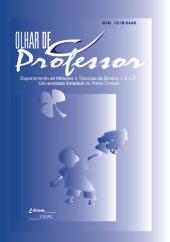EDUCAÇÃO INFANTIL E A ESCOLA FUNDAMENTAL DE 9 ANOS
Main Article Content
Abstract
Este artigo discute a implementação da Lei nº. 11.274, de 6 de fevereiro de 2006, que institui e normatizou o Ensino Fundamental obrigatório com duração de 9 anos, alterando a L.D.B.de nº. 9394/96, do ponto de vista das discussões e lutas travadas pelos fóruns de defesa da educação da criança de zero a seis anos. O artigo contempla três blocos de discussão O primeiro refere-se ao entendimento da formulação da lei, já que procura mostrar que a ampliação de um ano da escolaridade não fazia parte da agenda política e das reivindicações dos movimentos sociais; portanto entende-s como uma política econômica de educação. Uma segunda discussão refere-se ao entendimento da idéia da infância como experiência e, deste modo, discute-se o que a escola fundamental propõe como exercício da infância para as crianças. E uma terceira discussão versa sobre a relação entre raça, pobreza e fracasso escolar, mostrando a mecânica racista mo interior as escola fundamental e formulando a pergunta sobre o que essa escola propõe para a criança negra para além da antecipação do fracasso e da vivência da temática racial de maneira institucionalizada. A partir de um referencial baseado em Michel Foucault, Giorgio Agamben e Gilles Deleuze, discutem-se as propostas que estão colocadas para a educação da infância na perspectivada experiência.
Downloads
Article Details
Authors who publish in this journal agree with the following terms:
a) Authors keep the copyrights and concede the right of its first publication to the magazine. The work piece must be simultaneously licensed on the Creative Commons Attribution License which allows the paper sharing, and preserves both the author identity and the right of first publication to this magazine.
b) Authors are authorized to assume additional contracts separately, to not-exclusively distribution of the paper version published in this magazine (e.g.: publish in institutional repository or as a book chapter), with the author identity recognition and its first publication in this magazine.
c) Authors are permitted and stimulated to publish and distribute their papers online (e.g.: in institutional repository or on their personal webpage), considering it can generate productive alterations, as well as increase the impact and the quotations of the published paper.
d) This journal provides public access to all its content, as this allows a greater visibility and reach of published articles and reviews. For more information on this approach, visit the Public Knowledge Project, a project that developed this system to improve the academic and public quality of the research, distributing OJS as well as other software to support the publication system of public access to academic sources.
e) The names and e-mail addresses on this site will be used exclusively for the purposes of the journal and are not available for other purposes.

This work is licensed under a Creative Commons Attribution 4.0 International License.

